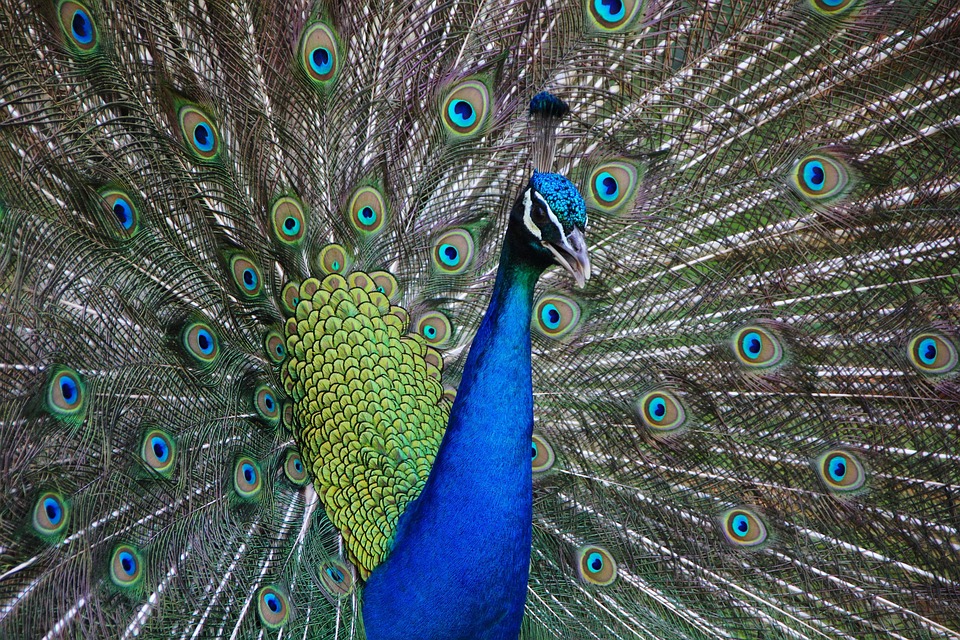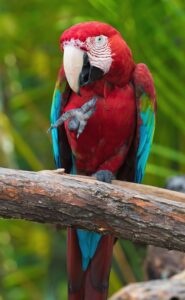
“`html
Introduction
Exotic birds captivate bird enthusiasts and pet owners alike with their stunning plumage, vibrant personalities, and unique behaviors. However, caring for these magnificent creatures requires a nuanced understanding of their needs, which often differ significantly from those of common pet birds. This article delves into the essential aspects of exotic bird care, offering comprehensive insights and tips to ensure a healthy, happy life for these feathered companions.
The Importance of Understanding Exotic Birds
Exotic birds, such as parrots, cockatoos, macaws, and toucans, originate from diverse habitats around the world. Their care requirements are shaped by their natural environment, diet, and social behaviors. Understanding these factors is crucial for providing an enriching life that meets both their physical and psychological needs.
Creating the Ideal Habitat
One of the first steps in caring for an exotic bird is to create a living space that mimics its natural habitat as closely as possible. This involves choosing the right cage, maintaining proper environmental conditions, and providing appropriate enrichment.
Cage Selection and Setup
The cage is the cornerstone of your bird’s living space. It should be spacious enough for the bird to move around freely, stretch its wings, and exercise. For larger species like macaws, a walk-in aviary is often ideal. The cage should be made of non-toxic materials with bar spacing that prevents the bird from escaping or getting stuck.
Inside the cage, include perches of varying diameters to exercise your bird’s feet and prevent pressure sores. Natural wood perches are preferable as they mimic branches found in the wild. Additionally, provide a variety of toys that encourage foraging and play, stimulating your bird’s mind and preventing boredom.
Environmental Conditions
Exotic birds are sensitive to changes in temperature, humidity, and light. Most exotic birds thrive in temperatures between 65°F and 85°F. It’s essential to avoid drafts and sudden temperature changes. Humidity levels should be maintained between 50% and 70%, particularly for species originating from tropical climates.
Proper lighting is also crucial. Birds require exposure to natural sunlight or full-spectrum lighting to synthesize vitamin D, essential for calcium metabolism. Ensure your bird receives 10-12 hours of light daily, adjusting for seasonal variations.
Nutritional Needs of Exotic Birds
A well-balanced diet is vital for the health and longevity of exotic birds. Their dietary needs are diverse, often requiring a mix of seeds, pellets, fresh fruits, and vegetables. Understanding the specific nutritional requirements of your bird species is crucial for preventing malnutrition and related health issues.
Formulated Diets vs. Seed-Based Diets
While seeds can be a part of an exotic bird’s diet, relying solely on them can lead to nutritional deficiencies. Formulated diets, such as pellets, are specifically designed to provide balanced nutrition. These should form the basis of your bird’s diet, supplemented with fresh produce.
Fresh Foods
Incorporate a variety of fresh fruits and vegetables into your bird’s daily meals. Leafy greens, carrots, sweet potatoes, apples, and berries are excellent choices. Avoid avocados and chocolate, as they are toxic to birds. Introduce new foods gradually to monitor for any adverse reactions.
Health Care and Veterinary Visits
Regular veterinary check-ups are vital in maintaining the health of exotic birds. Birds are adept at hiding signs of illness, so it’s important to be proactive in their healthcare.
Signs of Illness
Familiarize yourself with common signs of illness in birds, such as changes in eating habits, lethargy, feather plucking, or changes in droppings. Early detection is key to successful treatment.
Finding an Avian Veterinarian
Seek out a veterinarian specializing in avian medicine to ensure your bird receives expert care. Regular check-ups, vaccinations, and preventative treatments for parasites are essential components of a comprehensive healthcare plan.
Socialization and Behavioral Enrichment
Exotic birds are highly intelligent and social creatures, requiring regular interaction and mental stimulation to thrive. Without adequate socialization and enrichment, they may develop behavioral issues such as feather plucking, excessive screaming, or aggression.
Social Interaction
Spend quality time with your bird daily, engaging in activities such as talking, training, or simply being in the same room. Birds thrive on attention and can become lonely or depressed without regular interaction.
Training and Enrichment
Training sessions provide mental stimulation and strengthen the bond between you and your bird. Teach basic commands, such as “step up” or “come,” using positive reinforcement techniques. Additionally, rotate toys and introduce new challenges like puzzle feeders to keep your bird engaged.
Safety Precautions and Household Hazards
Exotic birds are naturally curious, which can sometimes lead them into dangerous situations. Being aware of potential hazards in your home is crucial to keeping your bird safe.
Common Household Hazards
Teflon-coated cookware, ceiling fans, open windows, electrical cords, and toxic plants are just a few of the dangers that can pose risks to your bird. Ensure your home is bird-proofed, removing or securing these hazards.
Supervised Out-of-Cage Time
When allowing your bird out of its cage, always supervise its activities. This not only prevents accidents but also offers an excellent opportunity for interaction and exercise.
Conclusion
Caring for an exotic bird is a rewarding experience that requires dedication, knowledge, and a deep understanding of your bird’s unique needs. By providing a suitable habitat, balanced nutrition, regular veterinary care, and ample socialization, you can ensure a long, healthy, and fulfilling life for your feathered companion. Embrace the joy and companionship that these extraordinary creatures bring, and you’ll find that the effort invested is richly rewarded.
“`
#ChatGPT assisted in the creation of this article.








